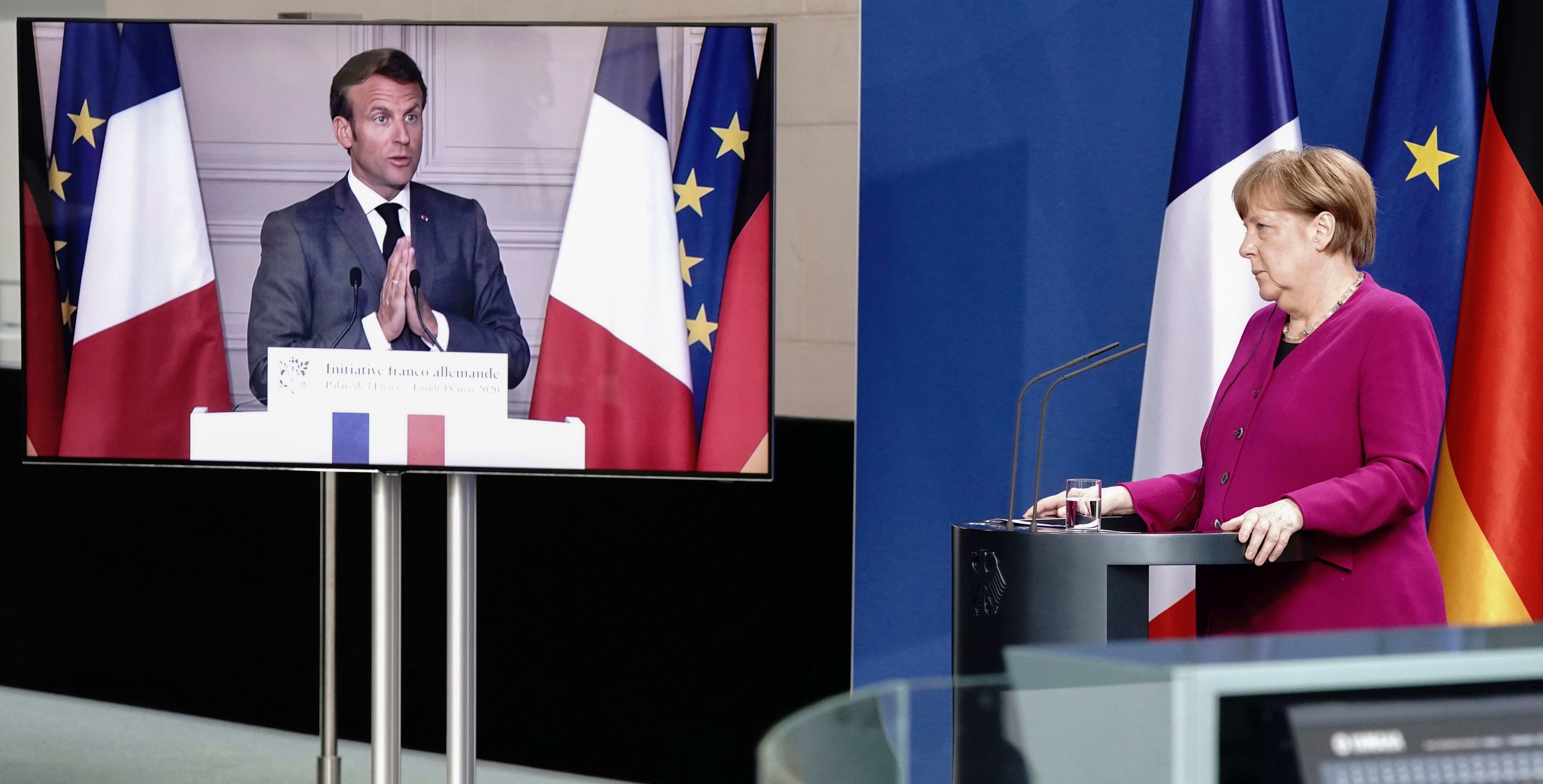
The EU flags are seen in front of the Berlaymont, the EU Commission headquarter on May 19, 2020, in Brussels, Belgium.
Thierry Monasse
The European Commission has unveiled plans for a 750 billion euro ($826.5 billion) recovery fund as the region faces the worst economic crisis since the 1930s.
It will borrow these funds and then disburse them via the European budget — the EU’s common basket of cash that supports programs such as Erasmus. They will be repaid over a long period of time, between 2028 and 2058.
The 750 billion euros includes grants of up to 310 billion euros and 250 billion euros in loans. In this context, the numbers fall short from what Germany and France suggested last week.
The two largest euro economies opened the door to issuing mutual EU debt last week, suggesting that the Commission, the EU’s executive arm, should raise 500 billion euros on the public markets. The Franco-German plan was to give all 500 billion in grants rather than loans to the sectors most impacted by the crisis.
The initiative was described as a “breakthrough” and a “historic” step as Germany had always opposed the idea of jointly-issued debt, even during previous crises.
However, there are four European countries that still oppose the Franco-German plan and want the EU to issue loans rather than grants as a way to mitigate the economic fallout from the Covid-19 crisis. Austria, the Netherlands, Sweden and Denmark also want strong economic reform commitments in return for any financial help.
By including a component of grants and loans, the Commission is seeking to bridge these differences among the 27 EU countries.
Wednesday’s proposal kicks off a discussion among the 27 EU member states. Each leader will meet, maybe via video call, on June 18 in the hope of finding a consensus over the exact details of the recovery fund.
The European Parliament, the only-directly elected EU institution, will also have to approve any new financial aid as well.
In the meantime, there are other short-term measures available across Europe. The European Central Bank is buying government bonds as part of its 750 billion euro program and there are 540 billion euros available in unemployment schemes, business investments and loans to governments.

